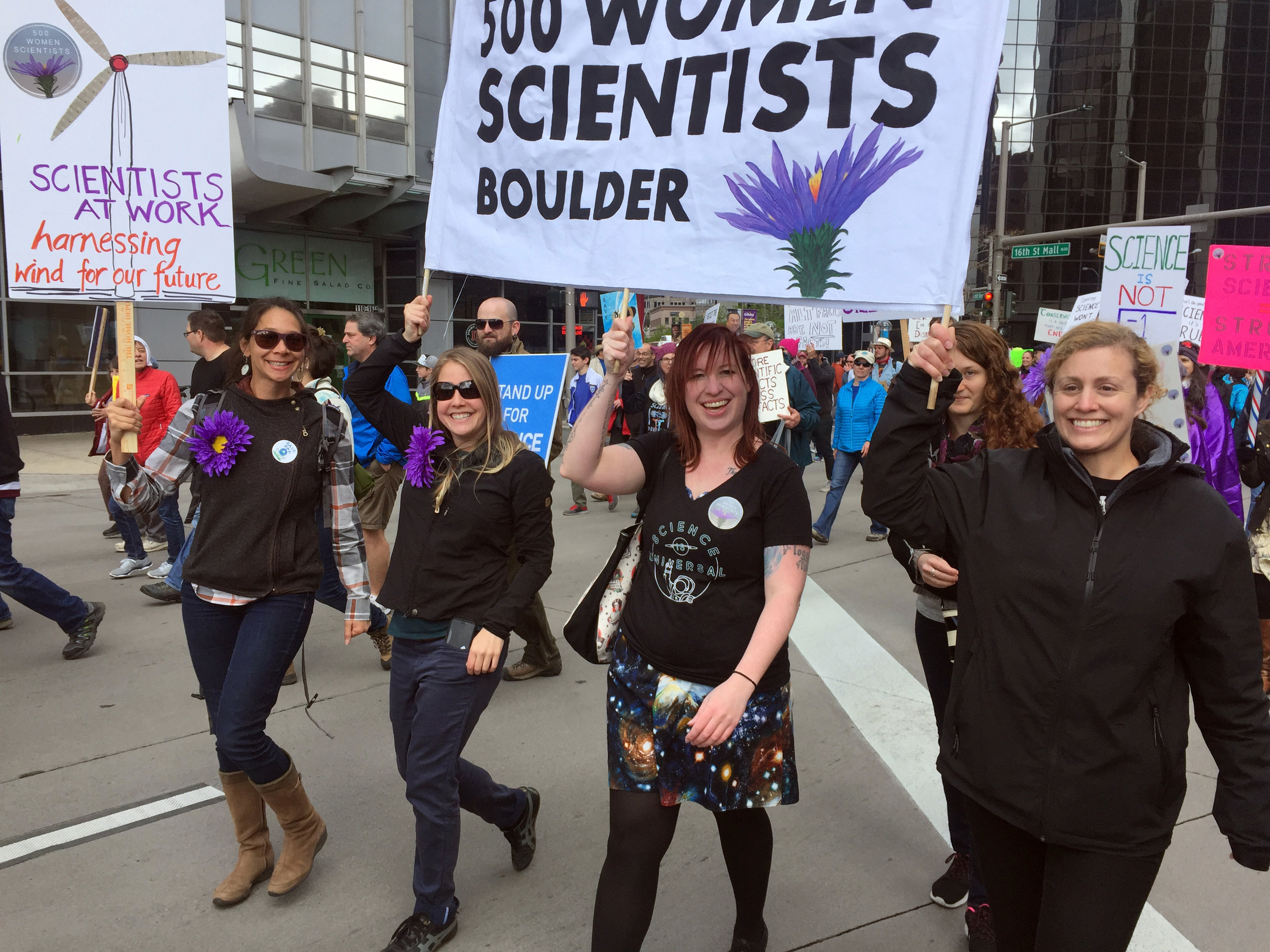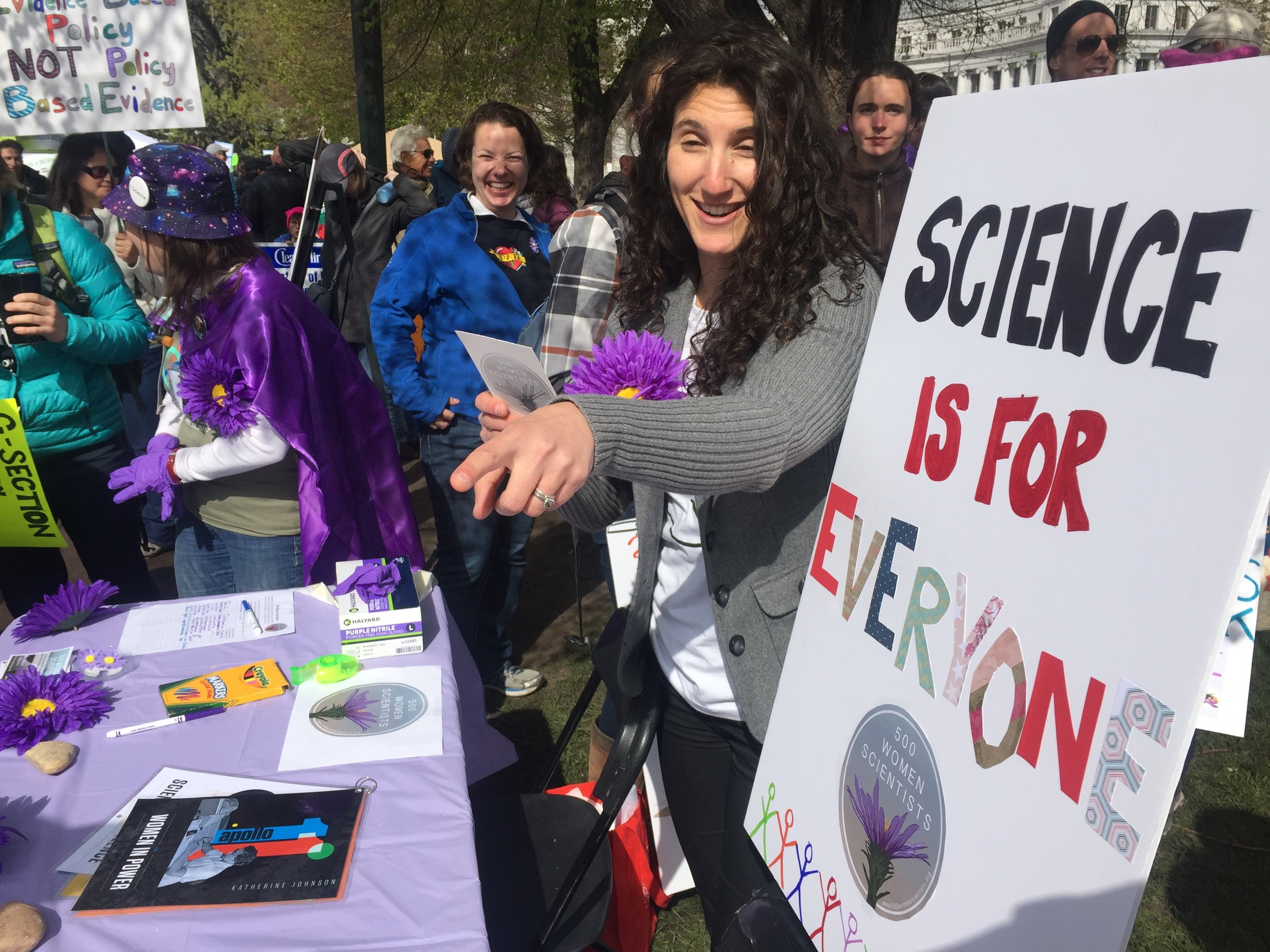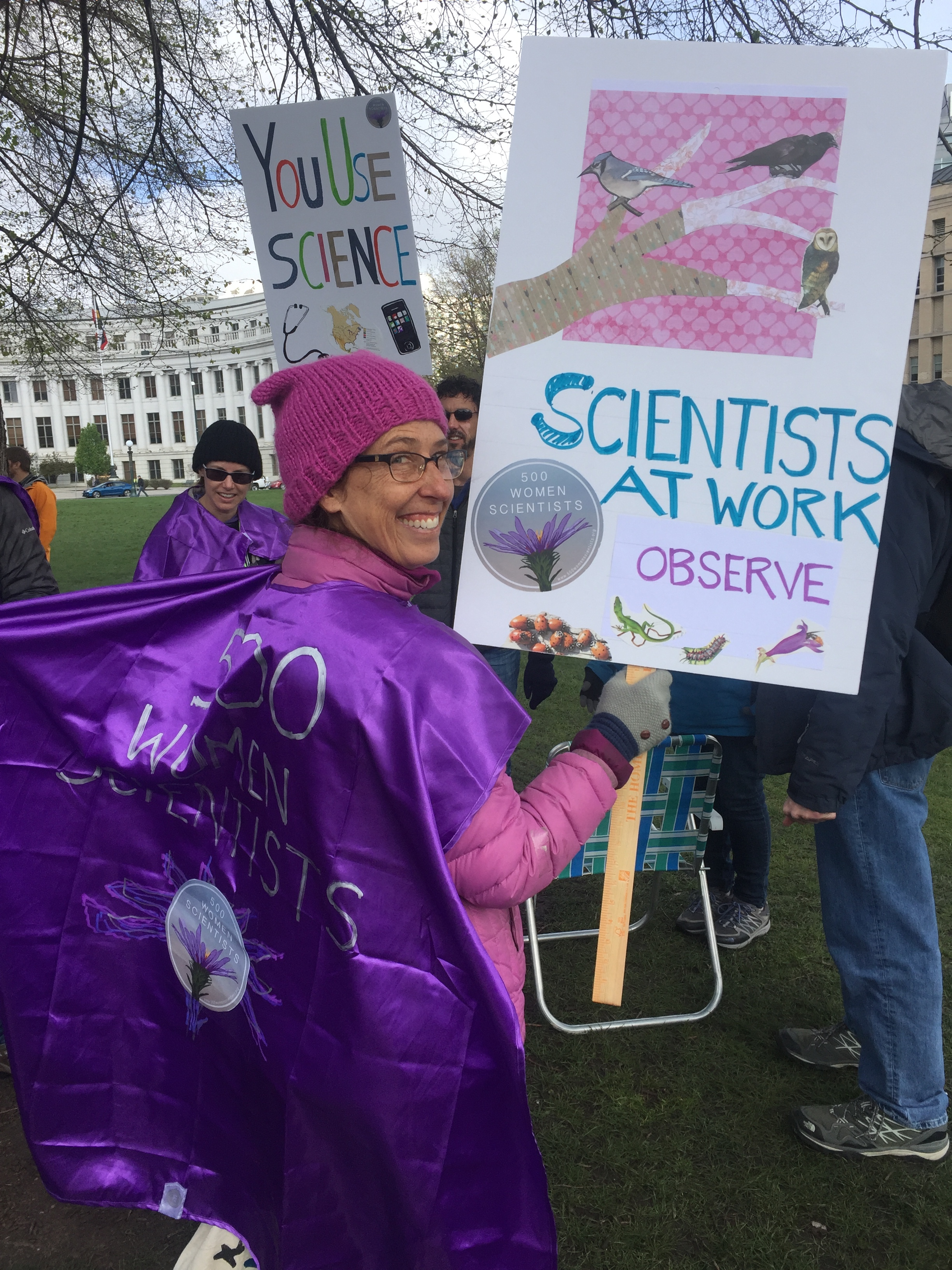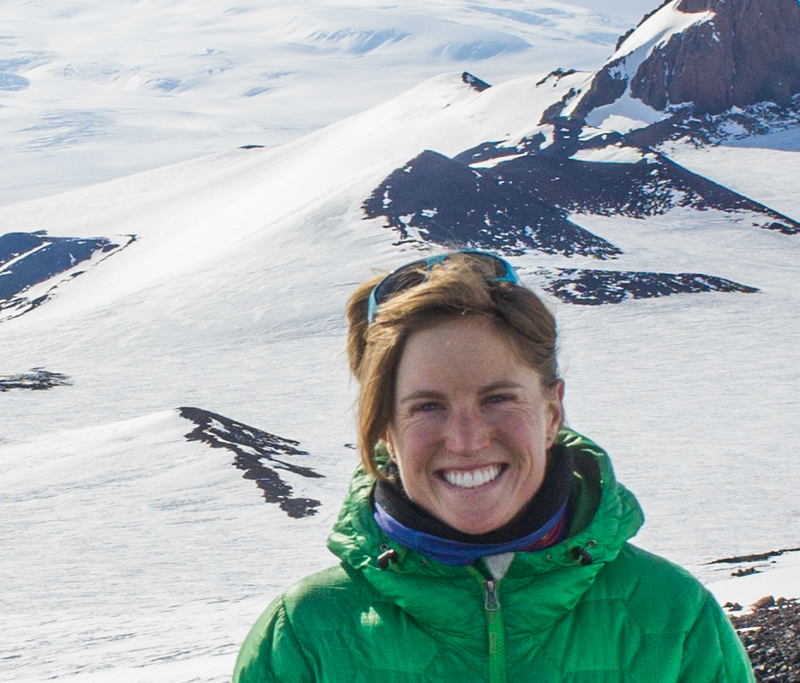Today we are excited to get to introduce the Boulder Pod. Boulder may be in the center of a scientific bubble, but the Boulder women have still felt the need for a strong network of women scientists. They have been quite active over the last few months, from the science march last week (with Trivia!), to organizing a social media seminar, and have many outreach activities planned! Specifically, they are planning to use their large group to reach out beyond Boulder to communities that could really gain from science outreach. Can't wait to see what else they plan.
(photo of from the CU stadium in Boulder, CO by Trish Zornio)
Pod Location: Boulder, Colorado
Number of women: 65 on Slack Team
Frequency of meeting: Transitioning from once to twice a month--once to work and once to socialize with a great group of women scientists.
Mission statement: We stand together to support one another professionally, to increase public understanding of science in our own and surrounding communities, and to contribute to fact-based public dialogue and policy.
How did you come to this mission, why is it relevant to your city and state? In our first Pod meeting, we brainstormed as a group the issues we found important and the general areas in which we wanted to work. It was clear from our brainstorm that building a network, growing professionally, sharing the importance of science with our community, and ensuring that science is applied appropriately in the public sphere were tops on our list. In Boulder, we have a large scientific population but many of us lacked the cross-disciplinary network of scientists and professional development that 500WS provides. Also, while in Boulder proper many kids are likely to know a scientist personally, this may not be the case in the rural areas not far outside the city limits. We feel that we must leverage our strong scientific community in our everyday community.
How has your pod ensured a diverse group of women scientists attend the pod meetings?
Like many pods, ours reflects the fact that our STEM workforce is not as diverse as our country’s population. We are looking for ways to do better at attracting and including women from diverse backgrounds. In terms of diversity of expertise, we are reaching out to friends and colleagues from different fields. We already have regular attendees from earth and planetary sciences, biological sciences, mathematics, engineering, and space and atmospheric sciences. Through events like the March for Science, we are meeting and hopefully attracting women using their STEM backgrounds in varying sectors of the economy, including in the male-dominated labs of the marijuana industry!
Can you talk about the activities the pod is focusing on? What actions and outputs do you envision? Who is your audience?
During our first meeting, we formed four teams to address our key interests: Education and Outreach, Policy and Advocacy, Communications (e.g., social media), and Community Coordination (building our internal network). Our teams have been busy in each of these areas. The E&O team (with help from all interested) coordinated our presence at the Denver March for Science, including a table with “pod-sourced” trivia about women in STEM and coloring books feature female STEM heros. Both were a hit. We plan to take the same set-up to the People’s Climate March and to our neighboring community’s Cinco de Mayo festival the following weekend. We are particularly excited about the latter, to hopefully reach a non-scientifically-self-selecting audience, with a more diverse demographic than the science marches. We’re even making new stickers for it!
For our outreach, our main audiences are other women in science, future scientists, and the general public. We hope to showcase the diversity of scientists, the human side of scientists, the importance of science in the public sphere, and contributions of women from diverse backgrounds to science.
Our other teams have been building our social media presence and participating in town halls, learning as we go. We want to develop skills, confidence, and leadership within our pod and build a professional support network for women in science, as well as have a voice in both local and national policy and potentially even support our own members in running for office.
You recently held a media training, can you talk about this event, how it fits into your mission and what you hope to gain from it?
One of our focus areas is raising the profile of science, and especially women in science, in public dialogue through media and through presence at events where we may be interviewed by reporters. We organized a media training leveraging members of the 500WS network in preparation for the March for Science. Wendy Bohon, communications coordinator of 500WS at the national level, and Beth Bartel, co-coordinator of our pod, partnered with science journalist Susan Moran to present on best practices and provide a forum for practicing the new skills. The session included the chance for us to brainstorm and practice answering likely questions, including what the organization stands for, why it matters, and why we are personally involved. Articulating our responses helped solidify why we are involved in 500 Women Scientists. We hope our members will be more confident interacting with the media not only when it comes to answering questions about 500WS, but also when it comes to promoting their own science and that of their colleagues. (One of the things we discussed was effective referrals!)
You have so many women who have signed up for your pod, do you have tips for other pods across the country? What have you learned so far?
In Boulder, we have the fortune of living in a science-strong community. Apart from a university known for the sciences and engineering, Boulder hosts multiple national labs (NOAA, NIST), companies such as Ball, and national research centers such as NCAR. We also are home to four members of the 500WS national leadership team. Between word of mouth and social media, we have had the fortune of not needing to recruit members! Instead, we have provided a much-needed outlet for a community-in-waiting.
One of our most important lessons learned for growth within our members is to make the bar for participation low. No one is locked in; everyone can try their hand at leading and bow out or ask for help as needed. We are all busy, some actively working on passing comprehensive exams or defending PhDs or working towards tenure. Those of us who are professionals may travel frequently for work. Many of us lack experience in the work we’re interested in exploring, such as science policy. In our meetings, we put names on all tasks and teams, giving each action a point of contact, but with the understanding that we can make mistakes, learn by doing, and leverage each other for help. We make saying yes to leading easy.
One of the best elements of our pod is the way our members step up to make things happen. Members have felt empowered to design and print stickers and brochures, make banners and posters, hold postcard-writing parties, join tele-town halls hosted by our US Senator, and create a social media presence. We hope to retain and build membership through continuing to offer an outlet for our members to get engaged, and also by continuing to offer professional development opportunities like the media training to build members’ skill sets and strengthen our powerful network.
Leaders of the Pod:
Beth Bartel is a geoscientist and communicator, currently working as the Outreach Specialist for UNAVCO, a non-profit supporting earth science around the globe. She has master's degrees in geophysics and journalism, both of which focused on active volcanoes and the people who live around them. Between the two degrees, she spent several years as a GPS field engineer working with scientists on problems ranging from glacier dynamics to fault behavior. Her primary interests are natural hazards and societal impacts of science. She looks for creative means to communicate science to the public, and trains other scientists to do the same. Find her on Twitter at @EatTheCrust for tweets on plate tectonics, diversity, #scicomm, and photos of chickens.
Pacifica Sommers earned her BA in Biology from Scripps College and her Masters and PhD in Ecology and Evolutionary Biology from the University of Arizona. For her doctoral research, Pacifica focused on how predators affect a grass invasion near Tucson, Arizona, in a hot desert. Her current postdoctoral research at the University of Colorado Boulder takes place in a polar desert, where she uses cryoconite holes, which are small mud puddles on Antarctic glaciers, as natural test tubes for experiments on microbial diversity. Besides science and deserts, Pacifica loves skiing, rock climbing, dancing, and creative writing.








